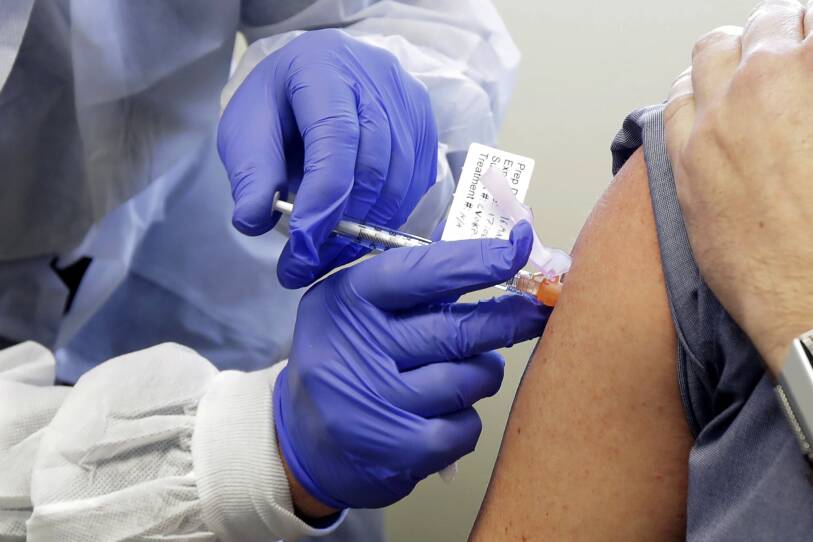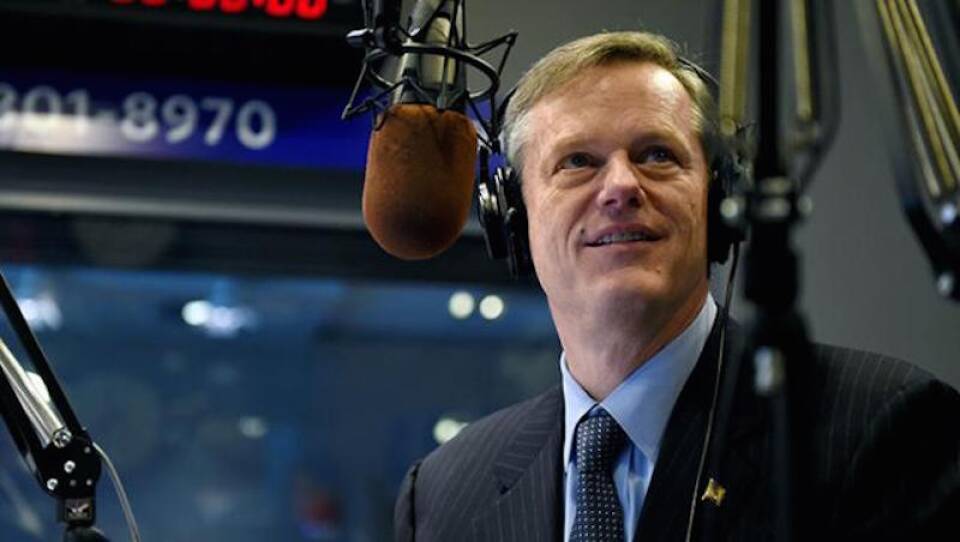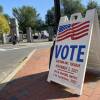If Michelle Wu is elected mayor next month and attempts to reinstitute rent control in Boston, she'll have a tough time convincing Gov. Charlie Baker that it will be an effective way to lower housing costs. Baker said Tuesday on GBH's Boston Public Radio that he'll "leave the door open" to a bill allowing Boston to return to rent control, but that he's generally not in favor of it.
"My three big problems with rent control are — as it was originally envisioned as — number one, it's unfair," Baker said during his monthly appearance on the radio talk show. Baker said he had lived in Boston as a young man and saw how rent control did little to account for the income of a renter. In some cases, he said it allowed people of greater means to enjoy discounted rent. The governor said he lived next door to apartments under rent control that cost "about half" of the market rent the young Baker was paying.
"The second issue is it really does affect development of new housing, and Lord knows here in Massachusetts and in the city of Boston, we need a lot of new housing," Baker said, echoing concerns that a return to rent control would lower the incentive developers have to construct profitable new housing stock.
"And the third issue is it doesn't give any kind of predictability at all to the tenants or to landlords unless you happen to be in one of those units," Baker said, adding to his criticism that the rent control system, as it existed in Boston before 1995, was unfair by not giving the sub-market rents to those who needed it the most.
Wu has called for a return to rent control, which would require an act of the Legislature or a ballot question to instigate. Democrats could override Baker's veto of a rent control bill with a two-thirds majority.
Baker also responded to criticism of his approach to clean energy policy and involvement of utility companies in designing the state's strategies. Host Margery Eagan asked Baker if it was unfair that utility companies were invited to write "the first draft" of new policies.
"I think it would be that way if you asked them to write the last draft. I don't think there's anything wrong with asking them to write the first draft. ... Which one ultimately becomes operative, Margery? Is it the first one or the last one?" Baker responded.
Baker touted his administration's work bringing hydropower to the state and efforts to develop a "net zero" energy plan for 2050.

During the 30-minute remote interview, Baker was once again pressed on his decisions to mandate COVID-19 vaccinations for state workers, including State Police and other front-line government employees. The governor expressed a level of sympathy for workers who refuse to get vaccinated for one reason or another, which may put their jobs in jeopardy.
"I wish I knew the magic combination here to get them over there, to get them over the line. I just don't in some cases. In some cases I succeed, but in a bunch of them I don't," Baker said.
A vast majority of State Police are vaccinated, but there is a vocal minority refusing to get the shots. Baker said he doesn't get angry with those who refuse.
"I don't think I'm being unreasonable when I expect them, for themselves and their families and for the people they come in contact with every single day, to get a safe and effective vaccine," Baker said.
Baker's comments came the same day his possible rival in the 2022 Republican gubernatorial primary, former state Rep. Geoff Diehl of Whitman, launched a new advertisement calling for an end to vaccine mandates.
"Individuals have the right to make their own health care choice related to taking a vaccine which, we’re finding out, is not providing the guaranteed protections promised by government officials. In fact, we’re seeing some very serious adverse reactions occur and it's more clear than ever that a medical decision like this should be left between a person and their doctor,” stated Diehl. Diehl's campaign did not immediately respond to a request from GBH News to clarify Dieh's claims about adverse reactions to the vaccines.
Asked about the current state of Congress and the federal government's nascent physical infrastructure bill, Baker did sound a bit angry, or at least frustrated, with the beltway politics holding up the multi-trillion dollar package.
"It would be a huge boon to the country and to the Commonwealth and to the economy," Baker said, urging Congress to "pass the infrastructure bill" before taking up social reforms and issues like community college and childcare.
"Then if you want to go on and debate how you want to handle some of these other issues, terrific," Baker said.
Baker appears most months on GBH's airwaves, but has not taken live questions from listeners during what was once an hourlong segment known as "Ask the Governor." At the end of Tuesday's interview, Baker said he would like to join the hosts in person for his next appearance.








